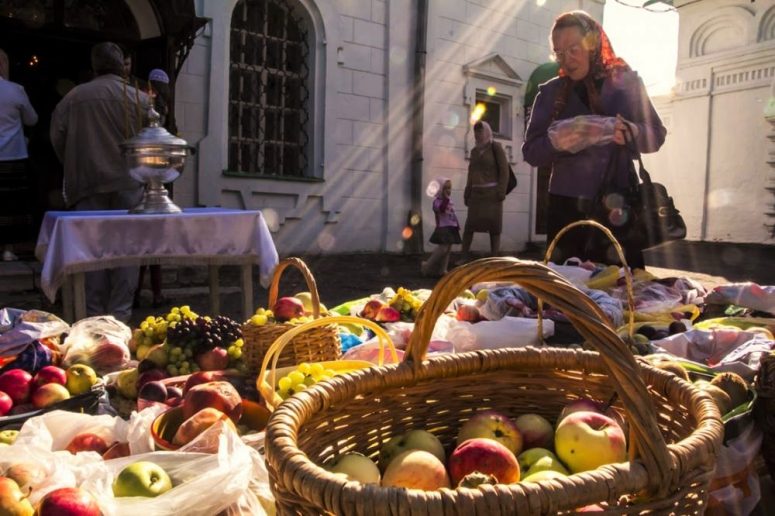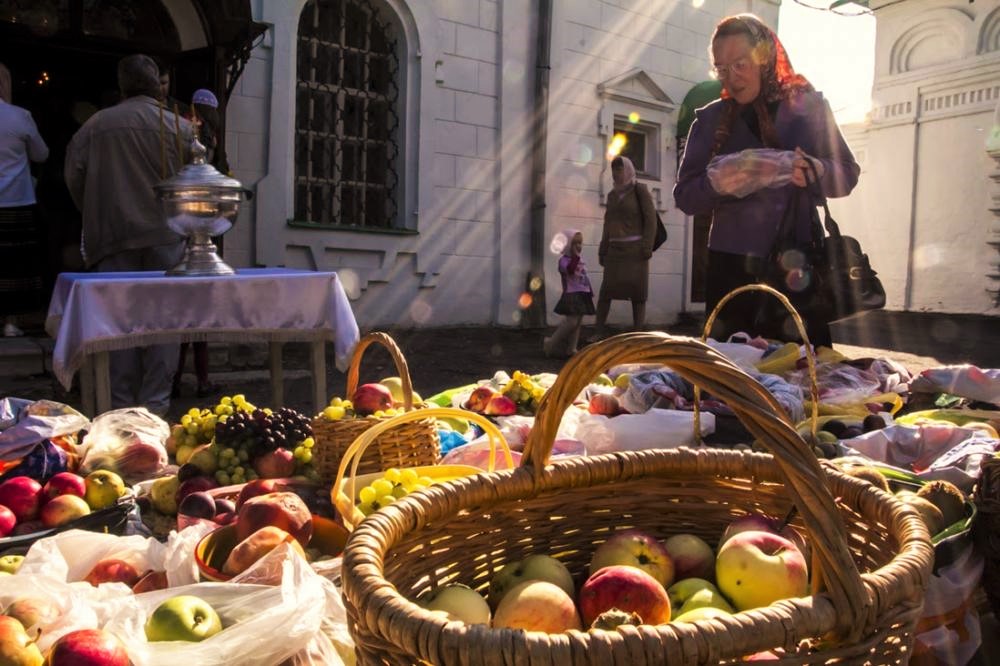
Adam’s sons were the first to start bringing some of the fruit of the ground as an offering to God (Gen. 4:2-4). Since Moses, the first sheaf of wheat, the first basket of fruit, and the first cup of honey were brought to the Temple as an offering to God – a sign of gratitude and hope for continuous support of the merciful God. The first of the firstfruits of thy land thou shalt bring into the house of the Lord thy God (Exodus 23:19).
This offering does not mean that the fruits are now especially holy, and you cannot even dispose of the leftovers, as Christians who rarely go to church sometimes think. One donates the first fruit of the God-given harvest, thus admitting that God’s benevolence was the source of the harvest. It is thanks to this offering that the Lord blesses the rest of the harvest.
Of course, people wouldn’t take the offering back home. It was left in the church for the clergy and the poor. Similarly, when we bring other offerings, e. g., a candle for the candleholder, money to the church donation box or to a beggar – we don’t take them back. Rather, we hope that we will receive God’s mercy in return. We swap material goods for the spiritual good, the temporary for the eternal. By showing his loyalty to God through this offering of some of his harvest, a Christian received God’s blessing for the rest of his crops, his home, and his life in general. This is what the prayer for consecration of the fruit says.
Translated by The Catalog of Good Deeds




